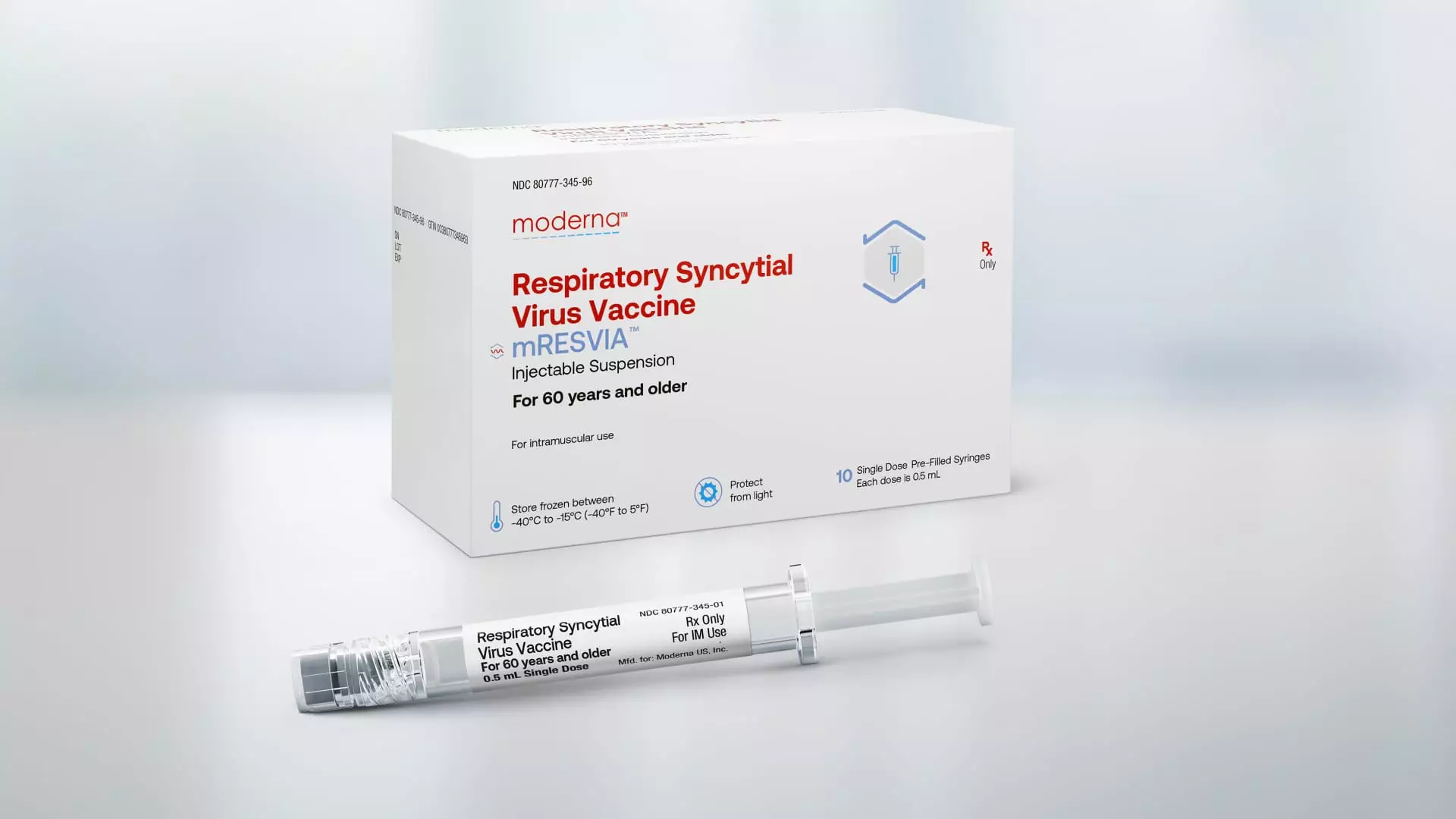The Food and Drug Administration recently approved Moderna’s vaccine for respiratory syncytial virus (RSV) for adults aged 60 and above, marking a significant milestone for the biotech company. This approval comes at a crucial time for Moderna, as it seeks to expand its product portfolio beyond its successful Covid jab. The decision to greenlight Moderna’s shot was based on a late-stage trial on older adults, highlighting the company’s commitment to addressing health threats faced by vulnerable populations.
Moderna’s RSV vaccine, marketed under the brand name mRESVIA, is the first messenger RNA vaccine to receive approval for a disease other than Covid. What sets Moderna’s shot apart is its availability in a pre-filled syringe, making it more convenient for healthcare providers to administer to patients. The company’s innovative approach to vaccine development showcases the versatility of its messenger RNA platform in addressing a wide range of infectious diseases.
Market Competition and Outlook
With the approval of Moderna’s RSV vaccine, the company is poised to compete against established players like GSK and Pfizer, who have already launched their respective RSV shots in the market. While Pfizer’s vaccine has lagged behind GSK’s in terms of sales, both companies have recorded significant revenue from their RSV products. Moderna’s full-year sales guidance for 2024 includes revenue projections from its new vaccine, indicating confidence in the potential market demand for mRESVIA.
Moderna’s mRNA platform holds promise for addressing a variety of diseases beyond Covid and RSV. The company has a robust pipeline of over 40 products in development, including a combination shot targeting Covid and the flu, a stand-alone flu vaccine, and a personalized cancer vaccine in collaboration with Merck. Investors are optimistic about the long-term potential of Moderna’s product portfolio, driving a significant increase in the company’s stock price in recent years.
Despite the promising efficacy data from Moderna’s phase three trial, concerns have been raised about the declining effectiveness of the RSV vaccine over time. While initial results showed an efficacy rate of 83.7% at three months, this number dropped to 63% at 8.6 months. Investors have questioned whether Moderna’s vaccine can maintain its effectiveness compared to competitors’ products. Additionally, the company has emphasized the importance of conducting head-to-head trials to accurately assess the performance of different RSV vaccines.
The approval of Moderna’s vaccine for respiratory syncytial virus marks a significant achievement for the biotech company and highlights its commitment to addressing global public health threats. With an innovative messenger RNA platform and a diverse product pipeline, Moderna is well-positioned to continue delivering solutions for infectious diseases, cancer, and other medical challenges. As the company looks ahead to future product launches and revenue growth, ongoing research and development efforts will be crucial in maintaining its competitive edge in the healthcare sector.

